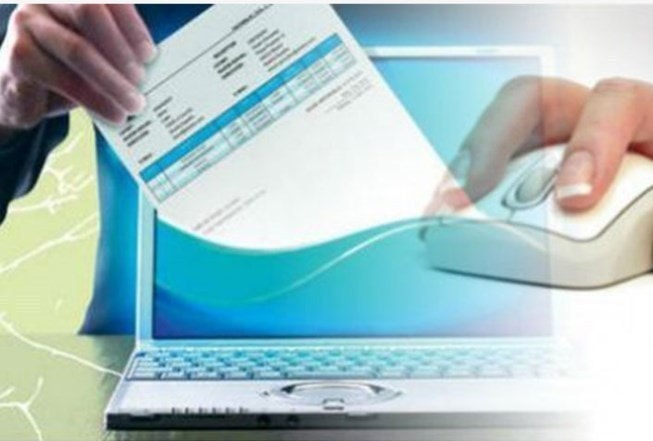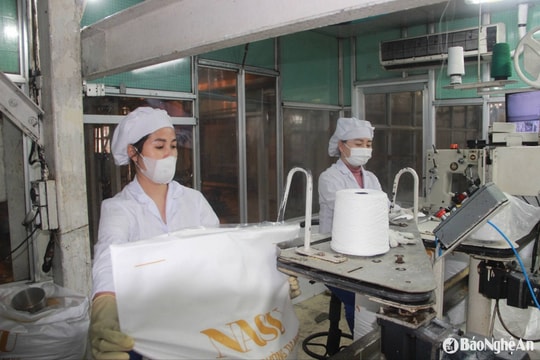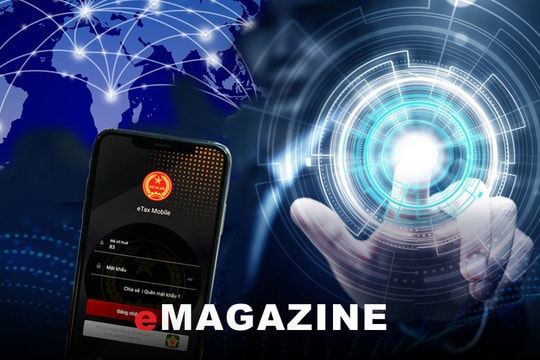'Afraid' of electronic invoices because they are expensive
The Ministry of Finance is drafting a Decree on invoices to expand the use of electronic invoices from 2018, but businesses are "afraid" of this type of invoice because it is too costly.
Worry about rising costs
As one of the enterprises (DN) that are implementing electronic invoices (HĐĐT), at the recent workshop to collect opinions on the draft on E-invoices, a representative of Orient Commercial Joint Stock Bank (OCB) said that E-invoices help businesses save on storage costs, printing costs and facilitate information and revenue management. However, according to the draft, from the beginning of 2018, E-invoices with tax authority authentication codes will cost 300 VND/sheet. With the number of invoices in use, it is calculated that each month the bank will spend an additional 300 million VND.
"The purpose of using electronic invoices is to help businesses save costs, but applying this regulation will cost businesses too much," he wondered. For this reason, the tax accountant of a bank with total assets of 260,000 billion VND calculated that each month the bank issues about 3 million invoices. If the authentication code fee is applied to the invoices, it will incur costs of up to 900 million VND.
 |
| Many experts are concerned that the tax authority's technology infrastructure system will be overloaded when businesses register to use electronic invoices. |
Explaining the application of the fee of 300 VND/invoice, according to the Ministry of Finance, more than 90% of enterprises declare directly on the electronic information portal of the tax industry without having to pay usage fees. This creates great pressure, so the information technology system of the General Department of Taxation must be regularly upgraded to meet the demand.
Providing electronic invoices with tax authority codes for free will also lead to a similar situation for the tax sector's information technology system. Another reason, according to this ministry, is that there are currently 8 enterprises providing value-added services for electronic transactions in the tax sector (called T-Van houses), but the activities of T-Van houses are very limited.
The free provision of the tax authority will make intermediary organizations providing electronic invoice services unable to operate because all businesses will choose to use it for free. Therefore, the Ministry of Finance proposed that both the tax authority and T-Van collect fees when providing the service of using electronic invoices with tax authority codes.
Overload capacity
In addition to the issue of fees, the hasty application of electronic invoices makes experts worry that "haste makes waste". Lawyer Tran Xoa, Director of Minh Dang Quang Law Firm, commented that within 7 years, the number of registrations to use electronic invoices is only a few thousand, so the draft's target of 400,000 enterprises switching from paper invoices to electronic invoices is a problem.
Will the tax authority's technology infrastructure be able to meet the demand when a large number of enterprises implement it simultaneously? Not to mention that there are only 3 months left until the end of 2017, but the decree has not been issued yet, so how can enterprises implement it? In addition, some issues arising in the process of using electronic invoices need to be clearly defined. For example, what invoices will enterprises use when transporting goods on the road so that when competent agencies such as market management inspect, they can recognize that they are not smuggled goods?
Agreeing with the above viewpoint, Mr. Nguyen Ngoc Tuan, Vice President of Dong Nai Import-Export Association, said that it will be very difficult to convert all enterprises to use electronic invoices in a few months, so it needs to be implemented with a roadmap. According to the Law on Supporting Small and Medium Enterprises, tax and accounting procedures are simplified to adjust the conversion of business households into enterprises, reaching 1 million enterprises in 2020.
Meanwhile, these enterprises mostly use part-time accountants, many business owners are the ones who issue invoices, not accountants. When using electronic invoices, enterprises will have to buy accounting software to use electronic invoices. Accounting software also has to be continuously upgraded, so enterprises have to charge maintenance fees.
Meanwhile, small and medium enterprises, especially micro enterprises, are still unfamiliar with e-invoices, so they need a transition period to get used to them. When they see the benefits, enterprises will boldly switch to it, but if they "force" the progress, it will be very difficult to achieve the goals in both quantity and quality.
It is expected that newly established enterprises and economic organizations will be exempted from the tax authority's electronic invoice service fee for 6 months from the month of establishment. After the free period, enterprises and economic organizations can choose to use their own electronic invoices (if they meet the conditions) or continue to use the electronic invoice service with the tax authority's code at the service price provided by the tax authority of 300 VND/invoice. Small and medium enterprises in difficult or especially difficult socio-economic areas are exempted from using electronic invoice services with tax authority codes. |
According to Thanh Nien Newspaper
| RELATED NEWS |
|---|


.jpg)



